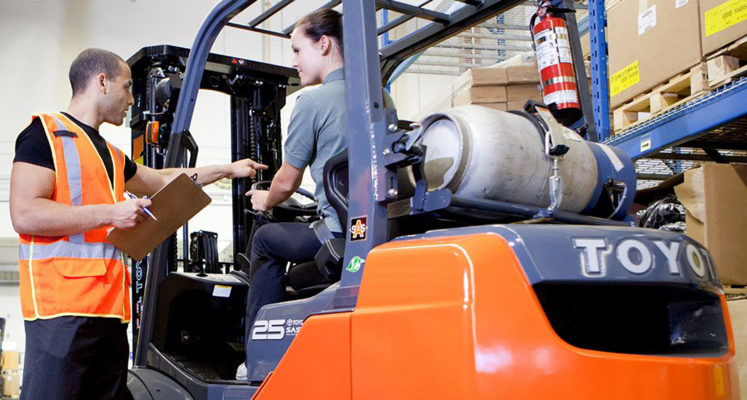In the material handling industry, forklifts play a crucial role in the efficient movement of goods and materials. However, operating a forklift is not as simple as it may seem. Proper training for forklift operators is essential to ensure safety, efficiency, and compliance with regulations. Here’s why investing in comprehensive forklift training is crucial for any business.
1. Enhancing Safety
Safety is the paramount reason for forklift operator training. Forklifts, when not operated correctly, can cause serious accidents resulting in injuries or fatalities. Proper training educates operators on safe handling practices, the importance of load balance, and awareness of surroundings, significantly reducing the risk of workplace accidents.
Key Safety Benefits:
– Reduced Accidents: Trained operators are less likely to make errors that lead to accidents.
– Injury Prevention: Proper handling techniques and awareness prevent injuries to operators and other employees.
– Equipment Longevity: Correct operation minimizes wear and tear on equipment, reducing the likelihood of mechanical failures.
2. Boosting Efficiency
A well-trained forklift operator can perform tasks more efficiently, increasing overall productivity. Training programs focus on the most effective ways to handle loads, navigate warehouse layouts, and operate the machinery under various conditions.
Efficiency Enhancements:
– Faster Operations: Skilled operators can move materials quickly and safely.
– Reduced Downtime: Knowledgeable operators are less likely to cause damage to equipment, leading to fewer breakdowns and less downtime.
– Optimized Workflow: Training helps operators understand how to best integrate their work with other warehouse operations, leading to smoother workflows.
3. Ensuring Compliance with Regulations
Forklift operation is subject to various regulations set by bodies such as the Occupational Safety and Health Administration (OSHA) in the United States. These regulations mandate specific training and certification for forklift operators. Compliance not only avoids legal repercussions but also fosters a culture of safety within the workplace.
Compliance Benefits:
– Avoiding Penalties: Proper training ensures compliance with regulations, avoiding costly fines and legal issues.
– Audit Preparedness: In case of safety audits, having trained and certified operators demonstrates a commitment to safety and regulatory adherence.
– Improved Reputation: A compliant and safe operation enhances the company’s reputation among clients, partners, and employees.
4. Enhancing Employee Confidence and Morale
Investing in training shows employees that their safety and professional development are valued. This can lead to increased job satisfaction, higher morale, and a more motivated workforce.
Employee Benefits:
– Increased Confidence: Proper training boosts operators’ confidence in their abilities, leading to better performance.
– Career Advancement: Training provides employees with valuable skills, enhancing their career prospects within the company.
– Workplace Morale: A focus on safety and development fosters a positive work environment, improving overall morale.
5. Reducing Operational Costs
Though training involves an initial investment, it can lead to significant cost savings in the long run. Efficient and safe operations reduce costs related to accidents, equipment damage, and downtime.
Cost Reduction Benefits:
– Lower Insurance Premiums: Fewer accidents and injuries can lead to lower insurance costs.
– Minimized Repair Costs: Proper operation reduces the likelihood of damage to forklifts and other equipment.
– Improved Productivity: Efficient operations result in better utilization of time and resources, enhancing overall profitability
Training for forklift operators is not just a regulatory requirement; it is a vital component of a safe, efficient, and productive material handling operation. By investing in comprehensive training programs, businesses can enhance safety, boost efficiency, ensure regulatory compliance, improve employee morale, and reduce operational costs. In the long run, the benefits of training far outweigh the costs, making it a smart investment for any organization in the material handling industry.
